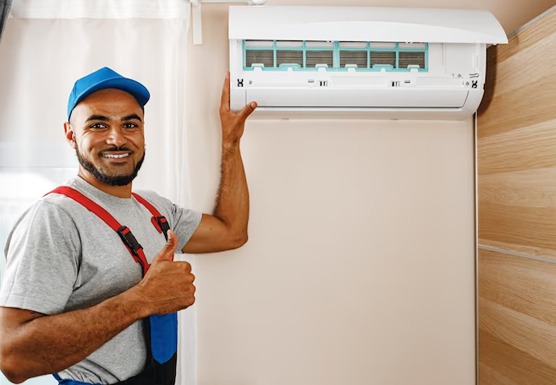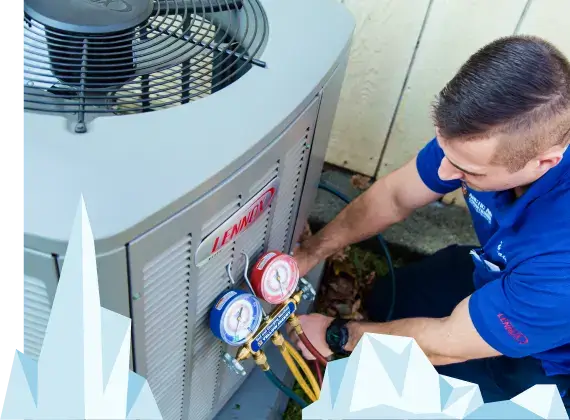The Buzz on Air Conditioner Repair Near Me
The Buzz on Air Conditioner Repair Near Me
Blog Article
Ac A/c Unit Repair: Expert Cooling System Repair Guarantees Your Home Remains Comfy During The Hottest Days

Common A/c Problems
Have you ever felt that unexpected rush of warm air just when you expected a cool breeze? It's frustrating, isn't it? Many homeowners face this problem, frequently unaware of what hides underneath the surface area of their cooling system. Let's unravel the mystery behind some of the most regular issues that demand timely air conditioning repair.
Why Will Not My A/c Cool Correctly?
When your a/c unit blows lukewarm air instead of a revitalizing chill, it's a clear sign something's off. A clogged filter or low refrigerant levels typically play the villain here. Think of trying to breathe through a headscarf on a hot day-- that's what a dirty filter does to your system. Ever wondered why your energy costs spike when the cooling drops? That's your air conditioning struggling harder to make up for inadequacies.
Strange Sounds and What They Mean
Clicking, buzzing, or rattling noises aren't simply sounds-- they're sobs for assistance. A loose belt or a failing motor may be the culprits. One homeowner stated how a persistent grinding sound ended up being a worn-out compressor, conserving them from a complete breakdown by acting rapidly.
Common Problems at a Glance
| Sign | Likely Cause | Quick Repair |
|---|---|---|
| Warm Air | Low refrigerant or dirty filter | Replace filter, check refrigerant levels |
| Water Leakages | Obstructed drain line or frozen coils | Clear drain line, thaw coils |
| Unusual Noises | Loose parts or motor issues | Tighten up parts, inspect motor |
Is Your a/c Cycling On and Off?
Short biking is more than an inconvenience; it can significantly lower your system's lifespan. This might indicate a large system or a thermostat glitch. Have you discovered your system turning on and off like a flickering light? Don't ignore it. It's a subtle hint prompting you to contact the experts before it becomes an expensive disaster.
- Dirty filters and coils cause airflow issues.
- Thermostat malfunctions cause inconsistent temperature levels.
- Electrical problems can stop your air conditioner from beginning.
Vital Tools for A/c Repair Work
Ever stood in front of a sprawling air conditioner unit questioning which tool will open the secret? The right instruments can make all the distinction between a fast fix and an endless afternoon of disappointment. A digital manifold gauge set isn't simply an elegant gizmo; it's the detective's magnifying glass in the world of refrigerant pressure. Its precision assists identify leaks or imbalances that a casual glimpse may miss.
When handling persistent or rusted elements, a quality tubing cutter is worth its weight in gold. It slices through copper pipes cleanly, avoiding damage that might cause costly leakages. Have you ever attempted to bend copper tubing by hand just to end up with kinks? Avoiding this requires specialized bending tools developed to maintain the pipeline's stability.
Tools That Professionals Swear By
- Air pump: Important for removing moisture and air from the system before charging refrigerant, ensuring ideal performance.
- Leak detector: A must-have for catching undetectable refrigerant leaks that can cause system inefficiency.
- Multimeter: Beyond measuring voltage, it's essential for diagnosing electrical faults within the air conditioning's control system.
- Fin comb: A small yet magnificent tool that straightens bent condenser fins, enhancing air flow and performance.
Pro Tips for Using Air Conditioning Repair Tools
- Constantly verify your gauge readings versus manufacturer specs; even experienced techs double-check to prevent expensive misdiagnoses.
- When using a vacuum pump, make sure all valves and tubes are airtight; a minor leak can ruin the evacuation procedure.
- Clean your fin comb frequently. Dust and grime can trigger it to snag, destructive delicate fins further.
In the heat of summer season, a malfunctioning compressor or clogged filter can feel like a ticking time bomb. But armed with the right tools and knowledge, the repair work becomes less of an ordeal and more of a satisfying puzzle solved. Isn't it curious how a well-calibrated gauge or an easy leakage detector can change the entire outcome?
Step-by-Step Repair Process
Ever discovered how your air conditioning unit starts to sputter, barely whispering the cool breeze it as soon as delivered? The first move is an extensive diagnosis-- since thinking only wastes time and resources. You may begin by examining the thermostat settings, however often the genuine perpetrator lurks deeper.
1. Initial Inspection and Diagnostic
Begin by powering off the system to avoid shocks. Open the access panels and aesthetically check for scorched wires, stopped up filters, or ice accumulation. A typical oversight is overlooking the condenser coils; dust and dirt here can choke effectiveness. Utilize a multimeter to test electrical parts and verify if the compressor is receiving power.
2. Recognizing Refrigerant Issues
Does the system blow warm air? That's typically an indication of low refrigerant levels or leaks. Experts utilize a manifold gauge set to determine pressure accurately. Keep in mind, overcharging or undercharging the system can cause permanent damage-- accurate measurement is crucial.
3. Cleaning Up and Element Replacement
Sometimes, a basic coil cleaning revives the system. Other times, it requires switching out capacitors, contactors, or fan motors. Replacing these parts includes mindful disassembly and reassembly; avoiding steps can cause additional breakdowns.
4. System Testing and Calibration
As soon as repairs are made, switch the system back on and observe its habits. Procedure the temperature level drop throughout the evaporator coil-- it ought to be roughly 15-20 ° F. If not, recalibrate the thermostat or look for air flow obstructions.
Expert Tips
- Prevent running the compressor without refrigerant-- this stress out the motor quickly.
- Use a UV dye to find elusive leaks; they're frequently concealed in hard-to-reach locations.
- Never neglect the drain line-- blockages here can trigger water damage and system failure.
- Wear insulated gloves when managing capacitors; they retain charge and can provide a nasty shock.
Protecting Versus Sudden Breakdowns
Have you ever wondered why your air conditioning unit sputters to a stop right at the peak of summertime? The fact is, overlooking routine upkeep typically invites unforeseen failures. Dust, particles, and damaged parts wage a quiet war inside your system. Preventive upkeep is the secret weapon-- capturing small concerns before they spiral out of control.
Specialist Tips for Keeping Your Air Conditioner in Top Shape
Air Conditioning Repair Services Jacksonville FLAir Conditioning In Jacksonville FL
Air Conditioning Company Jacksonville FL
Heating And Air Conditioning Service Near Me Jacksonville FL
Air Conditioning Contractors Jacksonville FL
- Tidy or change filters monthly: A blocked filter chokes air flow, requiring the system to work overtime and accelerating wear.
- Examine coil fins: Bent fins limit air passage, similar to a traffic jam in your cooling system. Utilize a fin comb to correct them thoroughly.
- Inspect refrigerant levels: Low refrigerant can trigger the compressor to overheat, a precursor to expensive repair work.
- Clear the condensate drain: Blockages here can cause water damage and mold growth, a surprise culprit behind lingering smells.
- Take a look at electrical connections: Loose electrical wiring or rusty terminals typically stimulate intermittent failures, a subtle indication.

When Was the Last Time You Listened to Your air conditioner?
That faint rattling or uncommon hum may seem minor, but it's a precursor to larger mechanical problems. One summertime, a customer pointed out a soft buzzing sound. A quick assessment revealed a loose fan blade-- easy to more info fix, yet left ignored, it might have shattered the motor. Moments like these highlight the value of regular checks.
Quick List for Seasonal Preparation
| Action | Frequency | Why It Matters |
|---|---|---|
| Filter cleaning/replacement | Every thirty days | Maintains air flow and effectiveness |
| Coil and fin examination | Twice a year | Prevents airflow limitations |
| Refrigerant level check | Every year | Makes sure proper cooling capacity |
| Drain line clearing | Every 6 months | Avoids water damage and mold |
| Electrical system assessment | Each year | Avoids sudden shutdowns |
Pro Idea: Beyond the Fundamentals
Did you know that gently lubricating the fan motor bearings annually can extend their life expectancy? It's a detail typically overlooked however vital. Shading your outdoor unit from direct sunshine can lower the compressor's workload, discreetly improving durability. Remember, the health of your a/c unit is a reflection of the attention you provide it before it screams for assistance.
Report this page